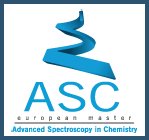| Project Case Study | ||||
| UNIT TITLE | UNIT CODE | ECTS CREDITS | LABORATORY | COURSE DESCRIPTION |
Research Practical Course in Forensic Chemistry |
ASC 19 semester III | 10 Credits | Forensic Chemistry | Practical course: Learning to apply selected analytical methods (with special attention to spectroscopic methods) to examination of criminalistic traces and biological materials for forensic purposes |
| Application of chromatographic methods for determination medicaments and drugs in biological materials | ASC 20 semester III | 10 Credits | Forensic Chemistry | Practical course: Learning to use chromatographic methods (gas chromatograph and high performance liquid chromatography with different type of detectors) for determinations medicaments and drugs in different biological materials (blood, serum, urine, saliva) for forensic purposes |
Research Practical Course in Neuroscience |
ASC 21 semester III | 10 Credits | Department of neurobiochemistry | Neuropeptides and their physiological functions, Neuropeptide receptors, Maturation and metabolism of neuropeptides. Techniques used for studying neuropeptides and proteins (transgenic animals, antisense technologies, microinjections, behavioral tests) In-vitro quantitation of neuropeptides and proteins (radioimmunoassay, radioreceptorassay, antibodies, aptamers)... |
| Research practical course in application of vibrational spectroscopy techniques and capillary electrophoresis for paper degradation studies | ASC 22 semester III | 10 Credits | Laboratory on the Permanence and Degradation of Paper | Practical course: In this course the student will learn to (1) plan and perform artificial aging experiments (using pollution chamber, climatic chamber or light aging equipment), (2) analyze the extent of sample degradation with the use of modern apparatuses for FTIR (DRIFT, ATR, PAS) and FT-Raman spectroscopy, (3) analyze non-volatile degradation products by capillary electrophoresis coupled to mass spectrometer |
| Research practical course in application of X-ray diffractometry and vibrational spectroscopy for structure studies of biologically active molecules | ASC 23 semester III | 10 Credits | Group of Crystal Chemistry of Drugs and Group of Oscillation Spectroscopy | Practical course: Structure-activity relationships of biologically active molecules. Crystallization studies (environment influence) of model systems: biological membrane- therapeutic agents. Single crystal X-ray diffraction and vibrational spectroscopy studies of molecular structure (absolute configuration, conformation and intermolecular interactions) |
| Research Practical Course in Raman mapping and IR imaging | ASC 24 semester III | 10 Credits | Vibrational Spectroscopy Group | Practical course: Learning to apply vibrational techniques to investigate distribution of main components occurring in plant and/or animal tissue |
| Applications of selected spectroscopic methods in studies of polymorphism in pharmaceutical solids | ASC 25 semester III | 10 Credits | Phase Transitions Research Team | Practical course: Learning about the use of selected spectroscopic techniques to investigate the polymorphism in medicinal drugs |
| Applications of vibrational spectroscopy for studies of hydrogen-bonded systems | ASC 26 semester III | 10 Credits | Molecular Spectroscopy Group | Practical course: Hydrogen bond - occurrence and meaning, definition, geometric and energetic criteria. Properties of hydrogen-bonded systems. Methods of detection of hydrogen bonds. Spectroscopic techniques used for studying hydrogen bonds - IR and Raman spectroscopy. Theories of infrared absorption bandshapes of single hydrogen bond and systems of interacting hydrogen bonds. Fermi resonance, isotope and temperature effects. Quantum chemical calculations for hydrogen-bonded systems. |

